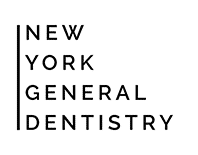Did you know that your stress levels are linked to your oral health? On days that you are not feeling your best mentally, putting extra care into your dental routine is extremely important to keep your teeth and gums clean and in good health. Learn more about the mental health link to poor dental health, how to care for your teeth, and tips to manage stress.
Causes of Poor Dental Health
The most common cause for poor dental health in mentally drained individuals is the behavioral changes that occur due to stress and anxiety. During sensitive and emotional times, having the self-motivation to follow a dental routine can be extremely difficult. Stressed and depressed individuals are also less likely to go out of their way to make dental health appointments.
When you experience stress, the body spikes the production of the stress hormone cortisol resulting in a weakened immune system. This can make it easier for bacteria to invade the gums and cause inflammation. Medications related to mental health such as antidepressants and anti-anxiety medications can cause dry mouth and decrease saliva production. This means that the saliva is not clearing food debris from the mouth.
Individuals who experience anxiety-related stress also experience cancer sores and teeth grinding. Teeth grinding can cause permanent damage to the molars and unrepairable damage to the protective enamel on the teeth.
How to Care for Your Teeth
Although stress, anxiety, and depression can feel like they take over your life, you must maintain a dental health routine to keep your gums and teeth healthy. A daily routine should consist of flossing at least once daily and brushing your teeth twice daily. Using mouthwash is also useful in rinsing debris and dangerous bacteria from the mouth. Setting an alarm in the morning and the evening can help you remember to take care of your teeth. This is important in avoiding the onset of gum disease and tooth decay.
Tips to Manage Stress
Eat Healthy
Managing a healthy diet by eating fruits, vegetables, whole grains, and lean protein can help you manage stress and control your moods. Skipping meals can affect your stress levels and is not beneficial.
Take Care of Your Oral Health
Taking care of your dental health by brushing twice daily and flossing at least once daily is important. Regular dental checkups and cleanings should be scheduled every six months, to monitor your oral health. If you have noticed an increase in grinding your teeth, talking to your dentist about obtaining a bite guard can prevent tooth damage, jaw pain, and sore muscles. Canker sores can be addressed with medications prescribed by your dentist.
Seek Treatment from Professionals
If you are noticing changes in your emotional health or dental health, consulting with a professional is an important step to correcting issues. Whether you need a behavioral health expert or a dentist, there is a professional ready to help you with your needs.
Practice Relaxation Techniques
To minimize unwanted stress, practicing mindfulness, breathing exercises, meditation, and exercise can activate the body’s relaxation response. These can help your mood and oral health improve and can lower stress levels.
Talk to Family and Friends
One of the most beneficial ways to address stress is to share your worries with those close to you. Having a conversation and seeking helpful advice from others can give you insight into stress management techniques and can help you feel less alone in your journey.
Schedule a Consultation
If you have any questions or concerns about your oral health, fill out an online contact form to schedule a consultation with Dr. Chern at New York General Dentistry in New York City, NY.
For over 20 years, Inna Chern, DDS has been offering personalized, high-tech dental care to Manhattan and NYC residents. With a focus on individualized attention and the latest technology, her modern Midtown East office aims to reshape dental care perceptions in New York by prioritizing patient well-being and innovative services.



